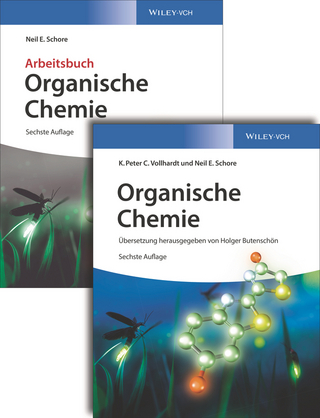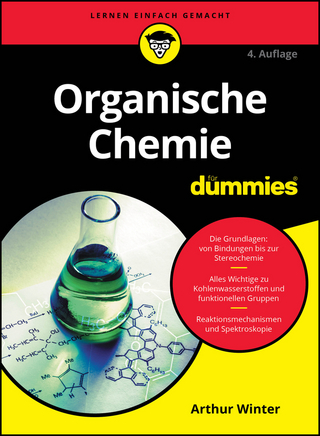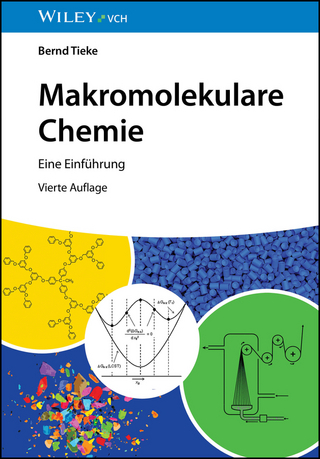
Merian's Elements and Their Compounds in the Environment
Blackwell Verlag GmbH
978-3-527-33891-7 (ISBN)
Now divided into two major parts and focusing on the essentials in this highly diverse field, the first part presents general aspects on the occurrence and behavior of elements in the major environmental compartments, their interactions with organisms, their regulation and control, as well as remediation measures. The second part has been completely re-designed and presents relevant data from a wide variety of sources on all environmental aspects. All the data and data sources have been carefully reviewed by the international editorial team, resulting in truly reliable information, and the use of a tabular format allows for quick reference and comparative studies. Finally, the data and examples have been taken from every continent to reflect the growing concern about environmental pollution in many parts of the world.
Jörg Matschullat holds the chair of Geochemistry and Geoecology at the Technical University Freiberg (Germany), where he also heads the Interdisciplinary Environmental Research Centre. Having obtained his academic degrees from the universities of Tübingen and Göttingen, he pursued his academic career at the universities of Clausthal and Heidelberg before moving to Freiberg in 1999. Since 1998, he is also a frequent guest lecturer at the universities of Campinas and Belo Horizonte (Brazil). Jack Ng leads the Risk Assessment and Intervention group at the Australian National Research Centre for Environmental Toxicology (Entox) at the University of Queensland (Australia). Having started his scientific career as an industrial chemist at the Carlton & United Breweries, he joined the University of Queensland in 1977 and commenced his research career in the Toxicology Laboratory within the Veterinary School. In 1992, Jack moved to his current position of Professorial Research Fellow at Entox. Jerome Nriagu is Emeritus Professor of Environmental Health Sciences and Research Professor at the Center for Human Growth and Development at the University of Michigan's School of Public Health, Ann Arbor (USA). Before joining the university in 1993, he was a research scientist with Environment Canada, Burlington, Ontario. Professor Nriagu was the longtime Editor-in-chief of the journal Science of the Total Environment, and has edited several major encyclopedias and book series, including the Encyclopedia of Environmental Health (published in 2011). His scientific awards include the Senior Fulbright Fellowship and the Distinguished Alexander von Humboldt Research Prize.
VOLUME 1: ELEMENT OCCURRENCE, DISTRIBUTION AND BEHAVIOUR IN THE ENVIRONMENT
The periodic system of the elements
Elements in the universe, the solar system and on planet Earth
Elements and minerals
Natural element cycles
Chemical compounds in the atmosphere
Chemical composition and dynamics of the pedosphere
Elements and elemental compounds in the hydrosphere
Elements and compounds in marine and terrestrial sediments
Macro, trace and ultra-trace elements in the biosphere and in the food chain
Environmental pollution and the anthroposphere
Elements and compounds in materials and waste
Elements and compounds at abandoned industrial sites
Elements and their compounds in indoor environments
Toxicity of elements
Essentiality, tolerance and toxicity of metals and metal compounds
Metallothionein and metal transporters
Metal implants
Influence of metals on DNA
Cellular mechanisms for balancing biological activity
Metal toxicity from electronics waste
Bioanalytical evaluation of metal and metalloid toxicity
Bioavailability and bioaccessibility of metals and mixed metals
Medical intervention, treatment of metal poisoning; acute and chronic toxicity
Risk assessment and guideline values
Use of elements for medical treatment and diagnosis
Remediation strategies
VOLUME 2: THE ELEMENTS IN DETAIL
Each element, from Hydrogen (1) to Lawrencium (103) is covered in alphabetical order, providing information on the following element-specific properties:
- Physical properties, incl. isotopes
- Chemical properties
- Important minerals, mining, production, uses, import/export
- Emissions/releases into the environment (natural and anthropogenic: uses, waste products)
- Distribution in the different environmental compartments (concentration ranges, enrichment, depletion in lithosphere, pedosphere, hydrosphere, biosphere with concentration in both biota and food, atmosphere)
- Potential for environmental exposure, primary routes of exposure, incl. occupational exposure
- Health effects and toxicological data for selected species (uptake, absorption and elimination in plants, mammals, fishes and humans, and effects on biota
- Relevance to public health (body burden, summary of health effects from epidemiological studies; reference dose/tolerable intake limits; deficiency and essentiality; most vulnerable populations; most vulnerable populations
- Extreme examples of pollution in the environment
- Regulations and advisories (Guidelines and limiting concentrations of air, water, soil and food)
- Analytical methods and challenges
- Economic aspects
| Erscheinungsdatum | 10.07.2023 |
|---|---|
| Verlagsort | Berlin |
| Sprache | englisch |
| Maße | 1700 x 2440 mm |
| Themenwelt | Naturwissenschaften ► Chemie ► Organische Chemie |
| ISBN-10 | 3-527-33891-8 / 3527338918 |
| ISBN-13 | 978-3-527-33891-7 / 9783527338917 |
| Zustand | Neuware |
| Informationen gemäß Produktsicherheitsverordnung (GPSR) | |
| Haben Sie eine Frage zum Produkt? |
aus dem Bereich


